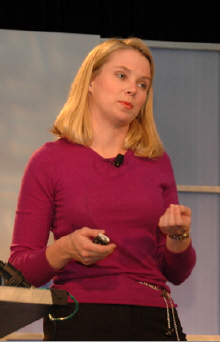Google's Marissa Mayer: Speed wins


In testing out the user interface for Google search, Mayer said that with more results for a query, users were spending less time on the site. It turned out that the cause wasn't just the paradox of choice--paralyzed by too many choices--but the fact that a page with 10 results was half a second faster that the page with 30 results. So, Google set about making the page with more results faster, and the rest is history.
Part of Google's secret sauce is that a round trip for a search query that returns a result in .05 seconds touches 300 to 700 Google machines across the country, Mayer said. "Users really respond to speed," she said.
She gave an example of how two of Google's AJAX applications, Gmail and Google Maps, benefited from speed tweaks. The choice to use Javascript for the Gmail interface was key, despite the reliability flaws of the client-side scripting language, resulting in instantaneous action when performing basic email tasks, such as moving or deleting messages.
When the Google Maps home page was put on a diet, shrunk from 100K to about 70K to 80K, traffic was up 10 percent the first week and in the following three weeks, 25 percent more, she said.
"You might say that it's obvious, but it is something bigger," Mayer said. Instant feedback enables a faster learning curve. She mentioned digital photography and Wikipedia as examples of how instant gratification helps drive people to become expert users faster. "If you have each transaction take less time, you have expert users more satisfied. You want lots of small and fast interactions if speed is important," she added.
What speed ultimately means, she said, is that the network will take care of it, but changes in the browser support will be important, such as richer support for client-side applications in Internet Explorer and Firefox. Technologies like Google Web Accelerator to help speed up the Web will also play a role. Mobile is also an area that needs to be sped up.
For Google, or any other Web site, speed means people viewing more pages in same visit and spending more time overall online...and more money.